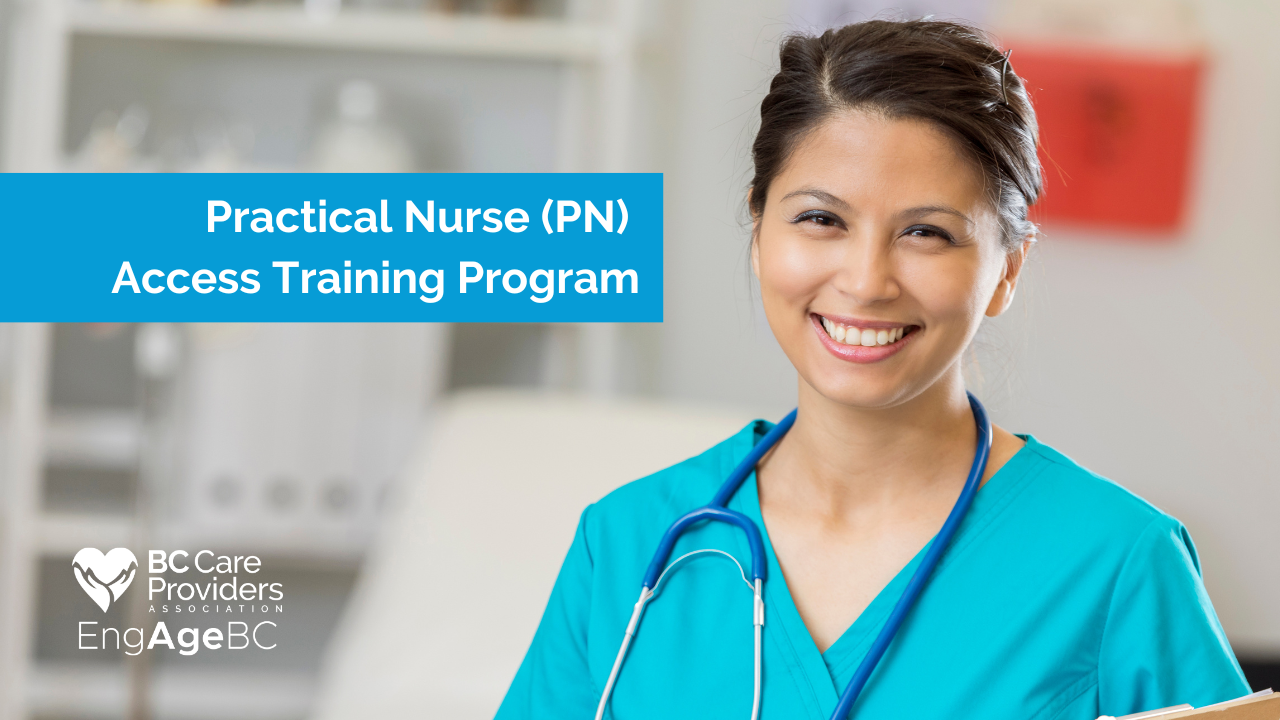Thank You for Your Interest!
Active opportunities for the funded Practical Nurse (PN) Access Training Program through BC Care Providers Association (BCCPA) are subject to grant availability and will be posted on this page as they arise.
How to Apply
To express your interest and receive alerts about future opportunities, please click here to complete our Training Intake Request form.
We will contact you if an active funding opportunity becomes available in your community.
General Enquiries
For general enquiries, please contact BCCPA’s Programs department at programs [@] bccare.ca


